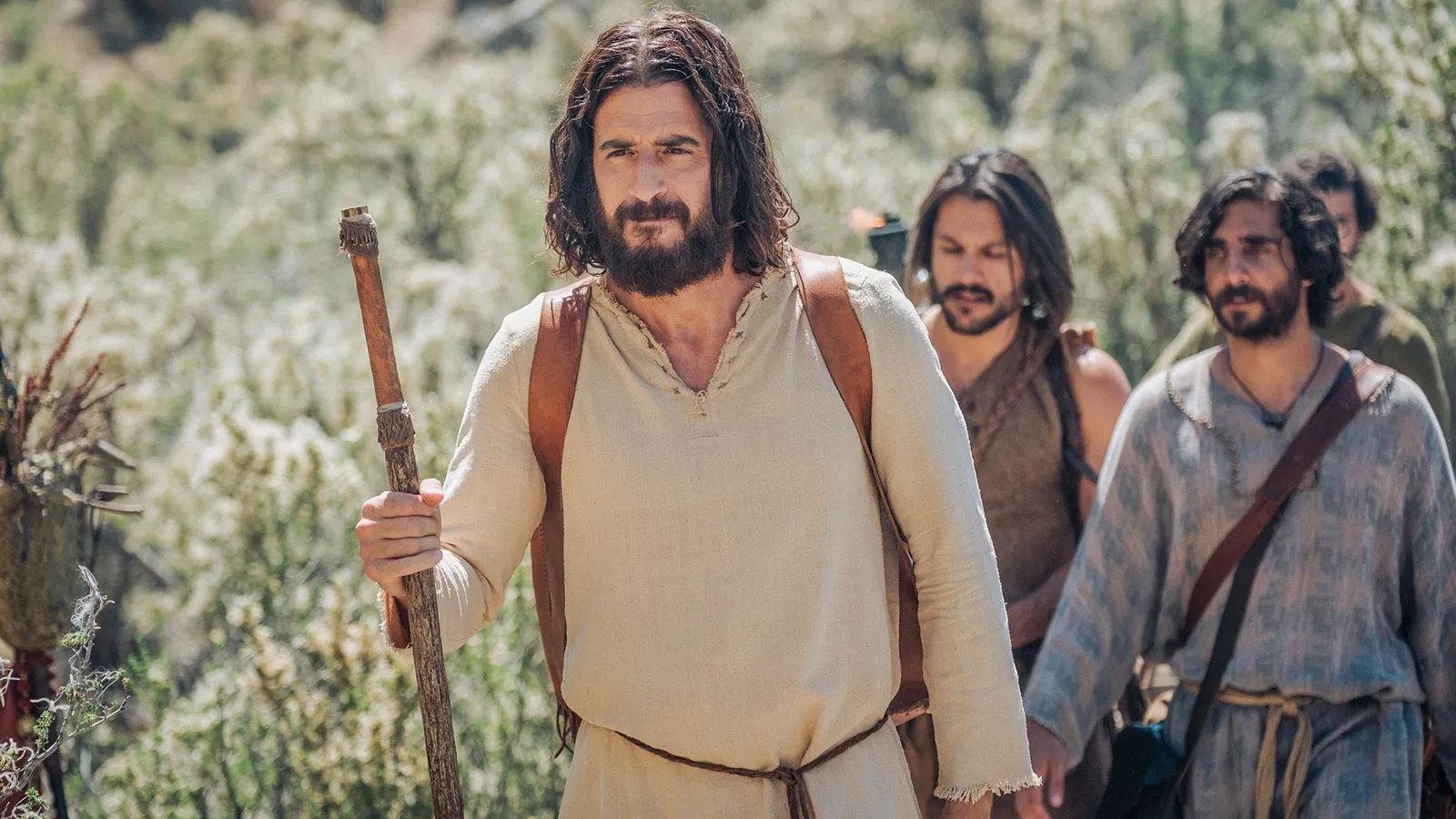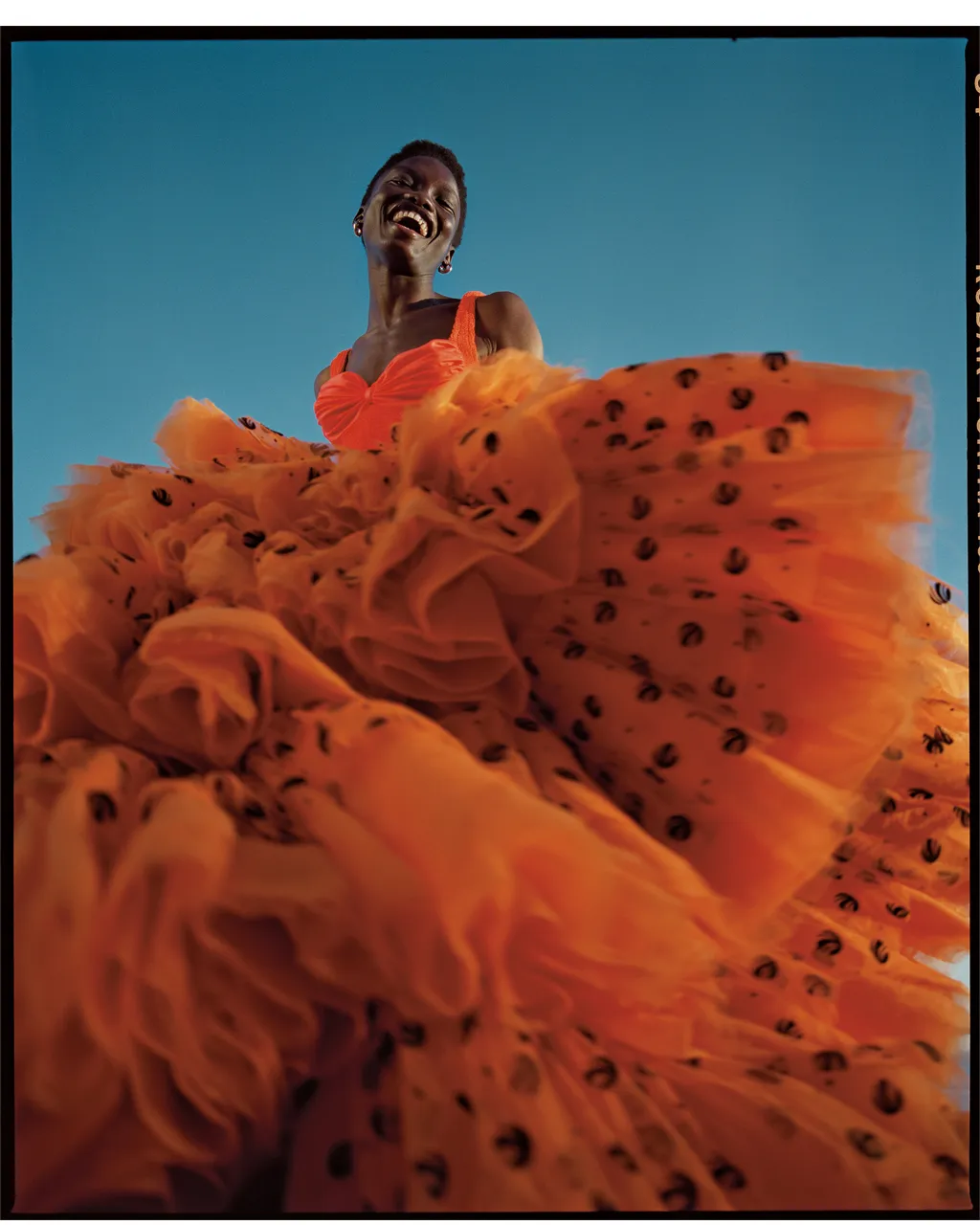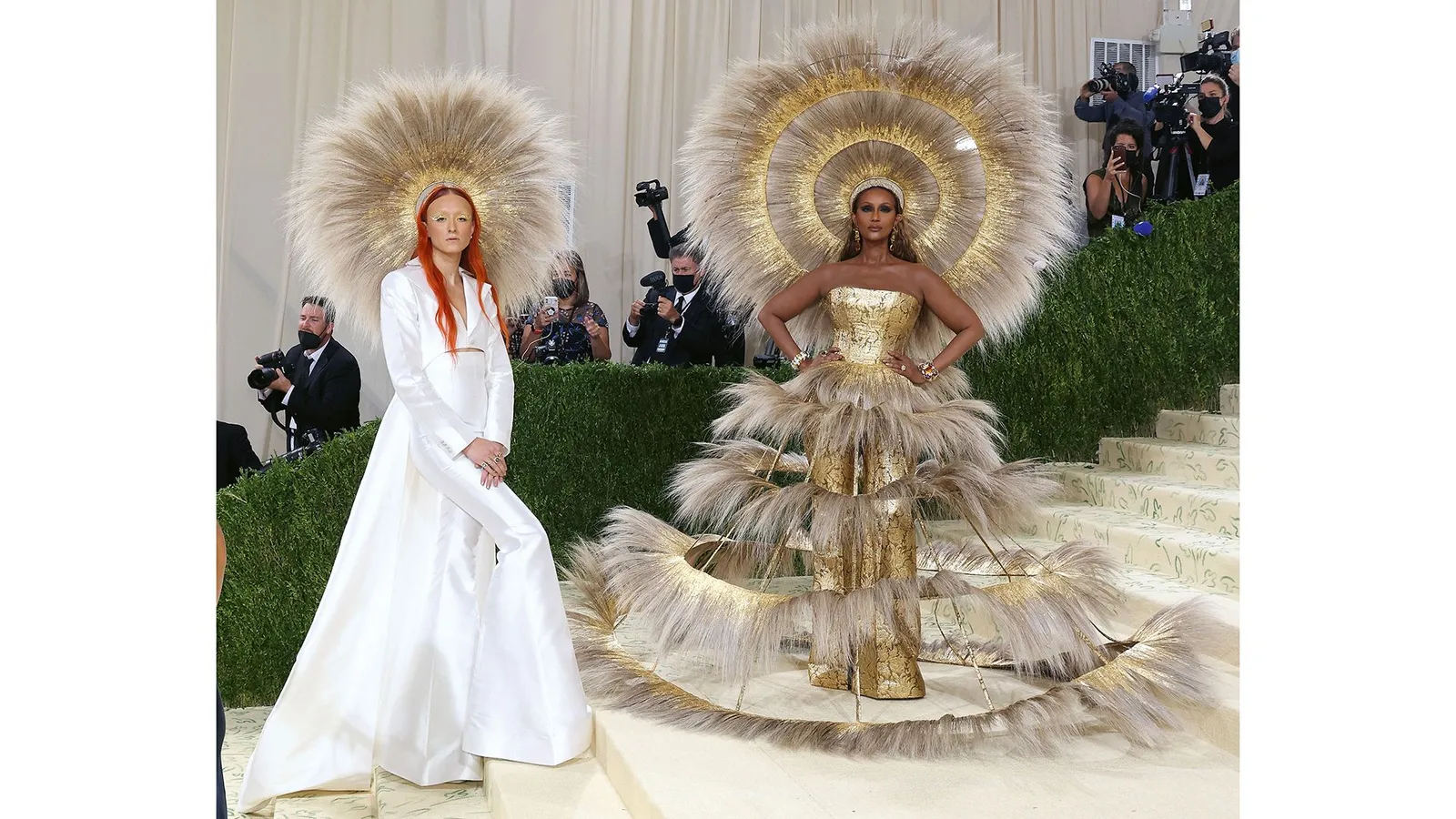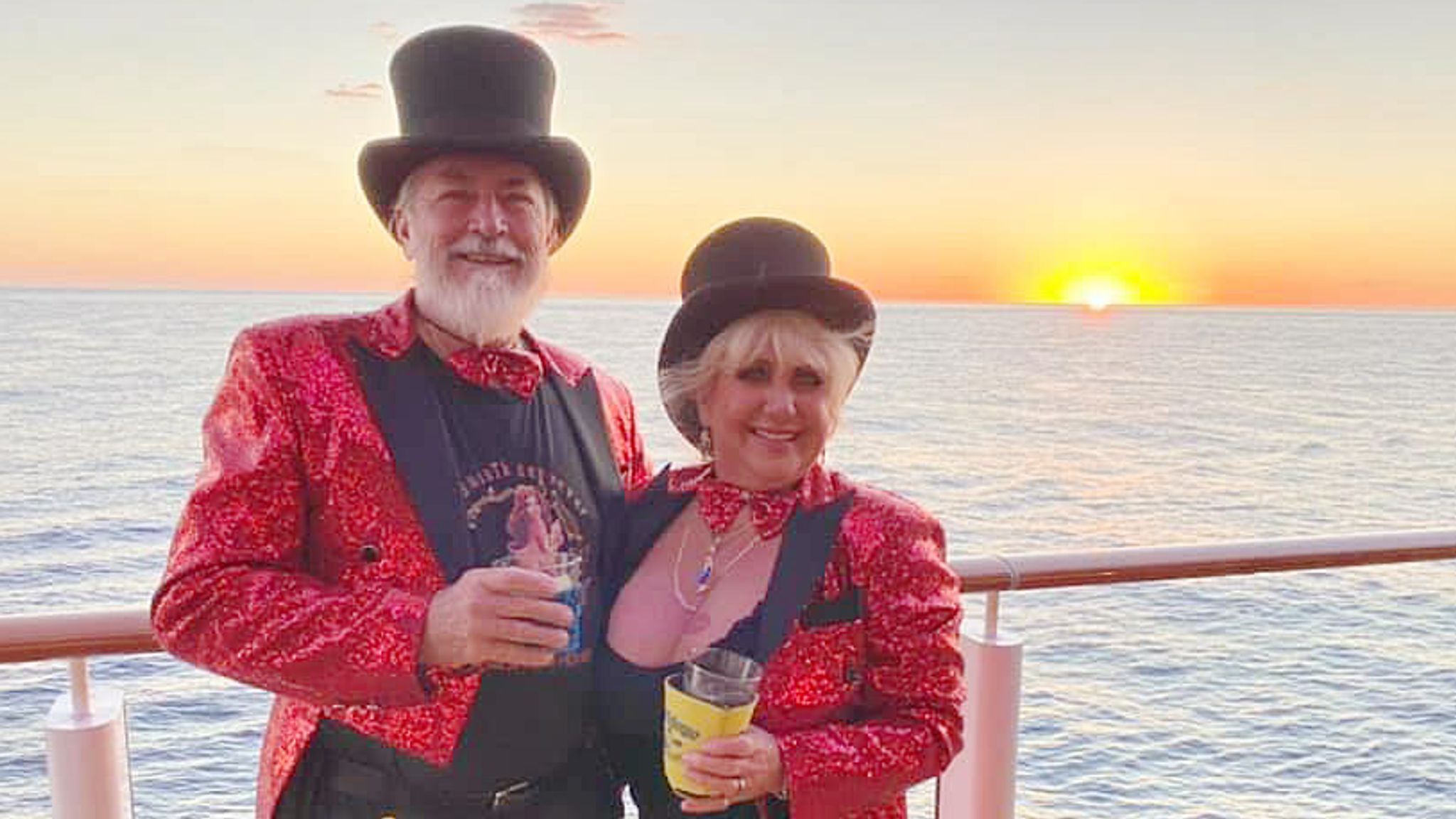The Chosen: The Christian-funded hit about Jesus taking the US by storm
It’s one of the most successful crowdfunded entertainment projects ever, with its makers claiming that during four seasons of the series, viewer support raised nearly $100m in production expenses. But the chances are if you’re not a US Christian, you might never have heard of The Chosen, the first multi-season series about Jesus of Nazareth, told through the eyes of his disciples and followers, as well as his opponents – as initially it was only available on its own platform, or through other Christian outlets.
From a small pilot in 2017, created by Illinois-born filmmaker Dallas Jenkins, with $11m raised from donors, The Chosen has sprouted into a production that can be watched on its own app, and on streamers including Netflix and Amazon. Its makers claim the series has had 200 million unique viewers across its platforms since launching. Season four had red carpet premieres in Los Angeles and London this week, to be followed by a limited cinema release (previous seasons pulled in around $35m at the US box office). The actor who plays Jesus, Jonathan Roumie, has met the Pope, twice, to talk about the series and his portrayal of Jesus.
There haven’t been many reviews of the series by mainstream rather than religious publications. A critic for The Atlantic, who also declare themselves to be a Christian, wrote: “The show is good. I’d stop short of calling The Chosen a prestige drama, but it looks and feels downright secular.”
The series is, however, all based on the gospel accounts of Jesus’s life and ministry. In seasons one to three, he assembles his inner circle of disciples, delivers the so-called Sermon on the Mount, heals various people, including a woman who has been bleeding for 12 years, raises Jairus’s daughter from the dead, and walks on water (excerpts released on social media show how the filmmakers recreate that miracle.)
A modern take on the story of Jesus
Содержание статьи:
Jesus of Nazareth has, of course, been portrayed many times on screen and stage, notably by Ted Neeley in 1973’s Jesus Christ Superstar and by Jim Caviezel in Mel Gibson’s ultra-violent but ultra-successful 2004 film, The Passion of the Christ. There was also a 1977 six-part TV mini-series, Jesus of Nazareth, made by Franco Zeffirelli. Martin Scorsese said recently that he’d finished another screenplay about Jesus; he also directed the controversial 1988 film The Last Temptation of Christ, where Jesus contemplates an ordinary life with Mary Magdalene.
“The West Wing was inspirational for us because it’s about the presidency. The president is around whom these characters dwell, but he’s one of five or six characters that are focused on. We thought the thing that you get when you read the gospels is that Jesus is having this impact on so many people, but if you don’t know those people well, if you don’t see life through their eyes, then the impact is minimised.”
The fleshing out of characters has led to modern interpretations of dialogue and backstories in the show, perhaps most intriguingly seen in the character of one of the disciples, the gospel writer Matthew, who’s portrayed as autistic. But unlike some of its predecessors (such as Jesus of Nazareth’s blue-eyed Robert Powell), The Chosen has a diverse cast including actors who are of Jewish, Arab, Southeast Asian and North African descent. The story is rooted in Jewish life and customs of the time – also sometimes historically glossed over in the representations of Jesus. Jesus and his disciples are to be found in synagogues and celebrating Jewish festivals, such as Sukkot.
“There have been many Jesus movies and miniseries and I’ve seen almost all of them,” Dallas Jenkins tells Culture. “But there’s never been a multi-season show where you can take your time to develop the stories, develop the characters, develop backstories, where you can really explore the humanity of these people. The reason we love long-form series is because we can invest in the characters, invest in the story development, and that’s never been done before in a Jesus project.
Jonathan Roumie, a devout Catholic himself, insists of Jesus: “You cannot strip away his Jewishness. It is imperative that all of what he did fulfilled the prophecies of Jewish culture of his time. So, I think to pretend it’s not there does him and the story a disservice.”
Jenkins says he hopes the tone of The Chosen is more human and humorous than has traditionally been the case for religious programming. “We like to say that we’re taking Jesus down from statues and stained-glass windows,” he explains.
“I think that we are removing the veil and the walls that we’ve sometimes put up between us and the authentic Jesus. Even though we have lots of stuff in the show that isn’t directly from scripture, I do believe we’re accurately capturing the character and intentions of Jesus in the gospels. And I do think that does contribute to people who don’t believe being able to appreciate the show. They just think: ‘Okay, this doesn’t feel so ominous and pious and religious that it’s trying to sell me something, it feels like a historical drama’. ”
But The Chosen does have evangelical intent as well; its creators have established a foundation that states it aims to maximise charitable giving to increase budgets for future seasons of the series, and to eventually subtitle and dub it into 600 languages. The series on The Chosen app and website is free to view, although there’s the option to donate.
The series isn’t free from criticism by Christians. Scenes from series two showing Jesus practising the Sermon on the Mount weren’t popular with some viewers, nor were scenes showing Mary Magdalene going back, temporarily, to her old lifestyle (there’s a widespread belief that Mary Magdalene was a prostitute before meeting Jesus, although that’s not in the gospels. Some Christians also thought that going back to an old way of life contravenes the message of salvation). Jenkins had to directly address a line in series three where Jesus says “I am the law of Moses” because some viewers thought the show was putting forward theology from the Book of Mormon, which carries a seemingly similar reference. Jenkins denied that the script was intentionally similar.
Nor is it free from the politicisation of Christianity, especially in the US, where religious ideas on whether abortion should be legal, and the inclusion of LGBTQ+ people in churches, are part of mainstream debate. There was a flurry of controversy last year about the Pride flag being spotted on a piece of crew equipment on the set.
“The show isn’t political. I don’t have any political agenda,” Jenkins says. “That’s why we allow freedom of expression on our set, why our cast and crew come from all different backgrounds politically, spiritually, or lack thereof. And if they want to wear T-shirts or have stuff on their own personal equipment, that’s their business.
“I don’t think it can remain free from audiences assigning certain politicisations to it, but that’s just out of my control. So, we have people who have accused me of being a liberal feminist, and I’ve had people accuse me of being a far-right extremist.”
A US phenomenon?
And while its makers claim the show’s had 600 million views across its various platforms, the popularity of The Chosen doesn’t necessarily mean that there’s a new era ahead for faith-based programming.
Sound of Freedom, distributed by the Christian Angel Studios, one of the platforms where The Chosen can be seen, had huge theatrical success last year in the US, and went on to average between $1m and $3m in cinemas when released in places like France, Spain, the UK and the Netherlands. But it was perhaps aided by publicity associating the storyline about child traffickers with the QAnon conspiracy theory. There was also a “Pay It Forward” option in the US that allowed cinemagoers to buy extra tickets for someone else to claim for free.
Otherwise, Christian content tends to struggle outside of the US. According to Tom Lashley from film industry analytics firm Gower Street, movies such as 2023’s Jesus Revolution (also starring Jonathan Roumie), set during a spiritual awakening in 1970s California, made more than $50m in North America, but only around £200,000 in the UK.
“In terms of faith-based film, particularly the US-produced ones, they really don’t make a dent outside of the box office in the US and Canada, even in predominantly Catholic European countries like Spain and Italy,” he says.
“This could well be because religious films like Jesus Revolution, I Can Only Imagine or God’s Not Dead are US-specialised and don’t translate to outside of the US.”
The Chosen’s box office in Europe so far has also been small – Gower Street reports that a release of episodes seven and eight from season three a year ago in the UK made £53,000 – but it’s starting to make an impact outside of the US on streaming platforms. It was the fourth most-watched show on Netflix in Brazil, and in the top 10 for all of Latin America, throughout the 2023 holiday period, according to show executives.
“I often describe this show has having a European style of filmmaking, it’s a little bit rawer,” Jenkins says. “My cinematographer is Greek, and he brings that kind of approach in his style. I think stylistically we are European in our storytelling and in our filmmaking, we don’t rush to easy answers. Hopefully slowly but surely audiences from elsewhere are starting to embrace the show and are saying to themselves: ‘this doesn’t feel like a glossy, kid-friendly ‘Jesus’ project, it does seem that it’s something raw and real’.”
Perhaps of course, The Chosen’s appeal comes down to the fact that a well-written character portrayal of Jesus always has big audience potential amongst believers. The show’s Facebook page has 3.8 million followers, and based on the interactions and comments, the majority seem to have a Christian faith.
According to Jenkins, the fact the story can’t go on indefinitely is a strength of the concept. It was, he says, always planned to run for seven seasons.
“And where we are now, is the beginning of the end,” he says. “I think that season six, which is the week of the crucifixion, is going to be so much more powerful than perhaps many portrayals I’ve seen in the past, because now there are stakes for the audience with the people involved. I don’t even have to show blood and guts for us to be emotionally impacted by seeing Jesus, his friends, his mother, going through all of that. I’m just hoping we’ll be able to get through it together.”






